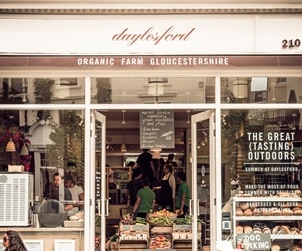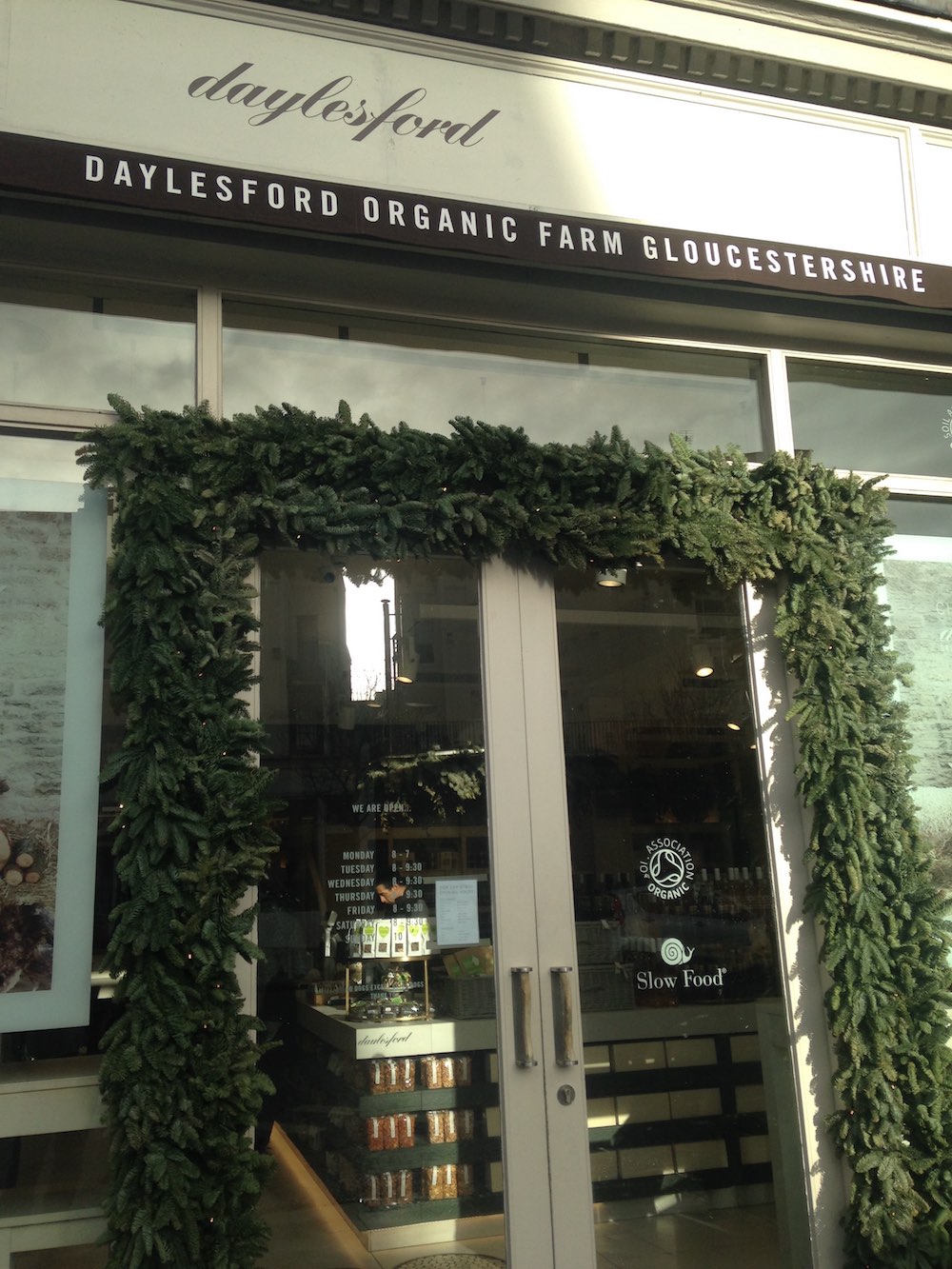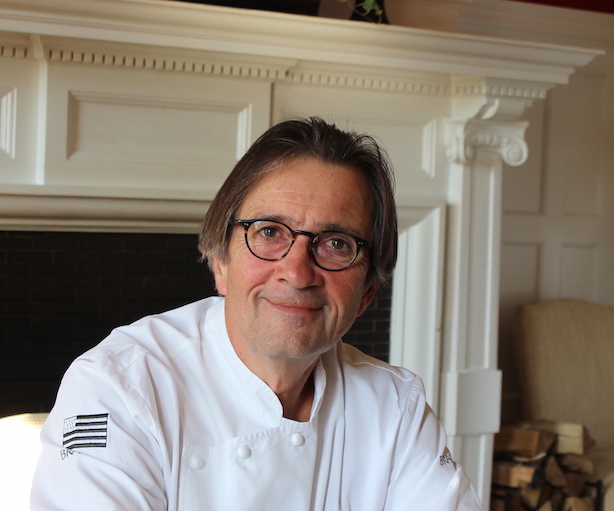Could Daylesford Farm’s London shops be the model for the future of the local food movement?
At the end of the Christmas holidays, in the first week of January, I played the tourist with my wife and three sons in London. We tramped around the city alternating between famous attractions and landmarks and good restaurants and (especially) gastropubs. We stayed at an Airbnb in Notting Hill near Ledbury Road, which is a bit of a gourmet alley. On the block going down to Westbourne Grove from our rented flat was The Ledbury itself (one of the UK’s top rated restaurants, and not on the agenda for a family vacation) and an outpost of Ottolenghi, from which we assembled a stay-in dinner one night.
Westbourne Grove is what the Brits call a ‘high street’, it’s commercial with shops, cafés, real estate agents, galleries and all the amenities one would expect in a fully gentrified neighbourhood in a big city. Or morning route to the Notting Hill Gate Tube station often took us across a stretch of it from Ledbury Road to the Portobello Road, and on the north side on our first morning we spied a brightly lit combination of a grocery shop, café and restaurant on the north side. What attracted us was the prospect of a latte from one of the white marble counters, so we went in to caffeinate and check out Daylesford.
We liked what we found inside. Here was what appeared to be a fully vertically integrated “farm shop” in the city, selling organic produce, meats, cheeses and prepared foods from the property. Supplementing the organic local fare were what appeared to be carefully curated imports: lemons from a particular grove in Sicily, wine from only one producer in Provence, garlic from a specific village in Spain, that sort of thing. How interesting and cool, I thought. Further investigation, by which I mean I read a pamphlet on one of the counters, revealed that this was one of a few Daylesford shops like it around London, all being provided for by an organic farm in Gloucester, which is about two hours west of the capital. This wasn’t just an interesting model, it was evidently successful, as the steady business in the shop and restaurant in the back seemed to also attest.
I liked what I saw and began to ask myself questions. Why, I wondered hadn’t this model found its way to Toronto? Was this the future of the ‘new food economy’? Would a vertically integrated farm and shop network provide the scalability to deliver organic farmers beyond once a week markets in city parks, while maintaining their independence and protecting them from the demands of big retail customers?
When I returned home I thought Daylesford Farm and its shop would make an interesting GFR story along the lines above. Here was a new model for the commercialization of locavorism. I fired up the Google and began to look into Daylesford and quickly realized not all sentiments directed towards it are kind. Daylesford turns out to be the expensive project of a Lady Bamford, the wife of a construction equipment tycoon. While she has earned an O.B.E. for her work in organic farming and philanthropy, not everyone is impressed with her fancy shops and fancy farming. If Daylesford is profitable now, it would have only been after many years of losses, presumably subsidized by the Bamford’s private wealth. Interesting, I thought. Then, I thought, so what? And why don’t we have a version of Daylesford here anyway?
How many wealthy Torontonians own large country properties within an hour or two’s drive from the city? Surely there must be one or two families with a pile in Caledon, Creemore or Prince Edward County with the capital needed to create a farm shop model. If they didn’t care to ‘farm’ themselves, then any of these regions are steadily growing their populations of new era organic and sustainable farmers. The Dayleford model looks, at least on the ground, eventually economically sustainable. But it requires an initial capital investment (and, I suppose, determined conviction) from a Lady Bamford-like individual or perhaps a group thereof. There must be one or two out there?
 Malcolm Jolley is a founding editor of Good Food Revolution and Executive Director of Good Food Media, the company that publishes it. Follow him on Twitter or Facebook.
Malcolm Jolley is a founding editor of Good Food Revolution and Executive Director of Good Food Media, the company that publishes it. Follow him on Twitter or Facebook.









Beautiful post, Malcolm.
Such a model would also help people understand the level of passion and commitment that has to go into elaborating beautiful food aside from concepts of “local” or “sustainability” which have a broad appeal but do not necessarily always equate with high craftsmanship that is costly and requires extreme commitment/patience/perseverance.
Because of some difficulties with our food culture in North America is a bit difficult and there might be challenges to make it viable from a business perspective given our very high retail leasing rates. Also, some people who travel focus on certain locations of great reputation that will not guarantee they provide the broadest experience in terms of understanding the complexities of some types of food products. Have seen some return thinking that they “know” that product and what constitutes highest craftsmanship/quality, but have received outdated or erroneous information.
Thank you!